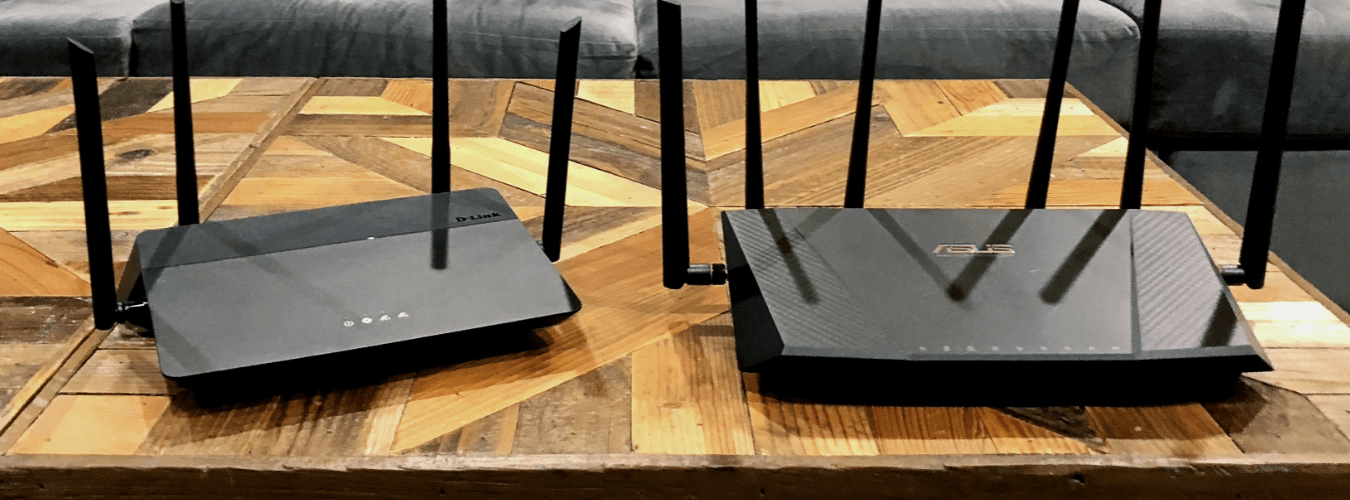Said in simple terms, a router can be best described as being a device that communicates with your device, as to which it connects to the internet. As the name implies, it essentially routes traffic between the internet and internet capable devices. With an ideal router, you could be receiving much faster internet speeds as well as enhanced protection from shady individuals. Additionally, getting the right router can mean the difference between full reception within your home and numerous Wi-Fi dead spots. Oftentimes, people confuse modems with routers and assume that the terms can be used interchangeably. This is far from the truth, especially when it comes to wireless routers. In today's post, we take a closer look at what Wi-Fi routers are, the difference between routers and modems as well as some info on choosing the ideal router.
What Is A Wireless Router?
When it comes to routers, you have two different types to choose from. The first of which are called wired routers. As its name implies wired routers, route traffic between the internet and your devices, via wired connections. Wired routers typically have multiple ports as to which you can connect multiple devices via wired connections. The second of which is known as wireless routers. Wireless routers are connected to a modem, via physical cable. This enables them to get and transmit information via the internet. Once you connect a router, it then goes on to create what's known as a WiFi network. They function exactly the same as wired routers, with the exception that it wirelessly routes internet traffic to multiple devices.
What Is The Difference Between Modem And WiFi Router?
As mentioned above, many people use modem and routers interchangeably but they are quite different indeed. Said in simpler terms, if you don't have a modem, then you would not be able to connect to the internet with your router. Put it this way, the modem's sole function is to deliver internet service into your home, directly from your internet provider. But, in order for you to access this service, it has to connect to your wireless router. Once this occurs, your wireless router is able to provide internet connectivity to your devices. However, it's also important to note that back in the early days of the internet, internet service was provided via telephone lines. Back then, modems allowed digital devices to connect to the internet, via analog signals that were used in telephone lines.
However, the drawback with this is that individuals experienced speeds which were measured via kilobytes per second (Kbps), whereas today's internet connections are measured by megabytes. For instance, back in the 90s an internet speed of 100 Kbps was considered ungodly. But, 100 kilobytes equates to 1 megabytes and the average internet speed in todays world is around 100 Mbps. So while modems played a similar role to routers in the past, due to their limits they are only used in today's world for being the truck that delivers internet to the router, which can then be distributed to your devices. You can find some examples of IT assessment proposal on this website.
How To Choose A Wi-Fi Router?
- Compatibility - Arguably, the most important thing you need to consider when it comes to purchasing a wireless router is compatibility. Regardless of how powerful, secure and expensive your chosen router is, if it isn't compatible with broadband service providers in your area, it simply won't function. Therefore, it's highly recommended that you decide which service provider you'd like to sign up for first, then inquire about the list of routers that are compatible with their service.
- Security - Back in the early 2000s, wireless routers came with different kinds of encryption such as WPA2 and WEP. The former was regarded as the most secure, while WEP encryption was vulnerable to what's known as brute force attacks. In today's world most manufacturers utilize WPA2. This helps to ensure that no one snoops on your internet traffic. In addition to ensuring that the router provides WPA2 connections, check for additional security features such as the ability to monitor devices on the network, block users from the network and add encryption.
- Speed - Put it this way, a less than stellar router will bog your internet speed down, while a good router will be able to manage and process all the data which stems from your home network. Based on the fact that your router operates as the bridge between the internet and your device, getting the wrong router can bottleneck your internet connection. Think of it like a computer that is dedicated to routing traffic. If it gets overwhelmed like a traffic cop during rush hour, internet speeds slow to a crawl. This is common in routers that are old or of a lower quality. But in the same breath a router cannot increase your speeds beyond what your internet service provides.
- For example, if you plan to get a plan from xfinity or spectrum which provides up to 400Mbps, but use a router which has a maximum capacity of 300Mbps, you're essentially losing 100Mbps of bandwidth by using that router. Therefore in a situation like this, if you purchase a router that is capable of handling 500Mbps connections, you would be able to fully utilize the 400Mbps speeds that your xfinity or spectrum plan allows.
How To Get Better Wi-Fi In My Room?
Here are some tips to consider when it comes to increasing WiFi coverage in any given room:
- Everything in your home can affect WIFI coverage such as walls, furniture and other objects. As such, try and establish a clear as possible path between your room and your router.
- Get A Router With Performance Enhancement Features - Modern day routers have performance enhancing features such as beamforming and Multi user MiMO.
- Stronger Antenna - In some instances, you may be able to buy a more powerful antenna for your router.
